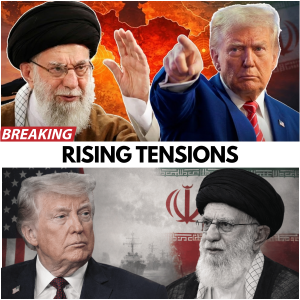A Fictional “Colbert Bombshell” Goes Viral, Revealing How Late-Night Satire Is Increasingly Mistaken for Breaking News
A dramatic, emotionally charged headline swept across social media this week — “COLBERT DROPS A BOMBSHELL — LIVE ON AIR!” accompanied by breathless claims that late-night host Stephen Colbert had delivered an unprecedented, unscripted monologue about trauma, accountability and long-ignored allegations.

No such broadcast occurred.
No clip of the described segment exists.
Yet the story spread at remarkable speed, becoming one of the latest examples of how fictional political and cultural moments — especially those involving well-known public figures — can dominate online discourse even when untethered from reality.
The viral posts described Colbert abandoning comedy entirely to address themes related to silence, complicity and the public reckoning surrounding sexual abuse. These narratives placed him in an imagined late-night “meltdown” or “truth-telling moment” that users widely shared as though it were genuine. The scenario blended emotional language, moral urgency and the aesthetic of breaking news, creating a storyline that felt plausible to many viewers even without evidence.
A Fiction Engineered for Emotional Impact
The posts circulated widely across TikTok, Instagram Reels and X, often accompanied by stylized graphics, AI-generated narration or edited clips of Colbert taken from unrelated episodes. The illusion of urgency — reinforced by phrases like “the control room panicked” or “the internet erupted” — appears crafted to evoke the rhythm of real-time broadcast tension.
Media scholars note that the blending of real public figures with fictional speeches has become increasingly common.
“This is political-cultural fan fiction,” said Dr. Regina Arlen, a professor of media literacy at the University of Pennsylvania. “These stories are not designed to deceive in the traditional sense. They’re designed to dramatize a feeling people already have about a public figure.”
The Colbert narrative relied heavily on that dynamic. The host is widely known for mixing satire with political critique; the fictional monologue amplified that persona into a moment of extreme confrontation.
Why Audiences Believed — or Wanted to Believe
Analysts point to several reasons the fictional monologue resonated so strongly:
-
Colbert’s public persona: He is known for emotional, politically pointed commentary. Viewers could imagine him delivering a grave, unscripted address — even if he didn’t.
-
The cultural appetite for reckoning narratives: In an era defined by public investigations, memoirs and documentary exposes, emotionally charged truth-telling has become a familiar trope.
-
The viral reward system: Platforms promote posts that evoke shock, catharsis or moral clarity.
“The online environment rewards stories that feel like closure or confrontation,” Dr. Arlen explained. “It doesn’t matter whether the event occurred.”
Late-Night Television’s Shifting Role
The fictional Colbert segment also reveals how much late-night television has transformed in the last decade. Once defined by celebrity interviews and light political humor, the format now functions as a hybrid of satire, analysis and activism. Clips from these programs circulate independently of their comedic context, sometimes reframed — or imagined — as serious political interventions.
This shift has blurred the boundaries between entertainment and news. Viewers accustomed to hosts delivering monologues about moral or political topics may be more willing to accept fabricated versions of those moments, especially when presented in a news-like format.
“Even when satire is obvious in the original medium, it becomes ambiguous once removed from its context,” said Dr. Michael Keene, a media historian at Northwestern University.
The Consequences of Viral Fiction

While many users recognized the Colbert story as fictional, others reacted as though it were factual, discussing the speech’s supposed impact or debating whether it violated network standards. The interpretive split illustrates the challenge of maintaining clarity in an environment where hyper-edited or invented content can mimic the tone and aesthetic of serious reporting.
Experts warn that even fictional narratives can shape public perception.
“These stories influence emotional memory,” Dr. Keene noted. “A viewer may remember the feeling of Colbert confronting something dark, even if the segment never occurred.”
Such effects, while subtle, accumulate over time, contributing to what researchers call narrative distortion: a blending of actual events with imagined ones in collective perception.
A Mirror of Cultural Tension
The viral story also reflects broader cultural anxieties — about transparency, institutional failure, and the public hunger for accountability. Even though the monologue never happened, the narrative’s popularity speaks to a desire for moments of public moral clarity, particularly from trusted cultural figures.
In this sense, the fictional Colbert speech served more as emotional expression than misinformation. It distilled the longing for a high-profile figure to articulate truths that many believe remain overlooked.
Conclusion
Stephen Colbert delivered no such monologue. There was no studio panic, no unscripted late-night reckoning and no clip withheld from the public.
But the viral spread of this fictional moment reveals a deeper truth: online audiences increasingly engage with political and cultural narratives crafted more for emotional resonance than factual accuracy.
As the lines between satire, reporting and storytelling grow ever thinner, distinguishing fact from fiction has become not just a journalistic challenge — but a cultural one.





